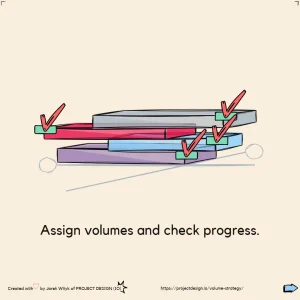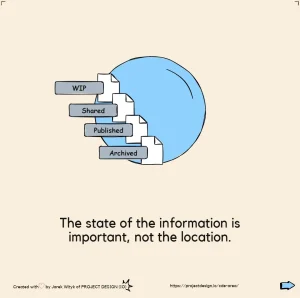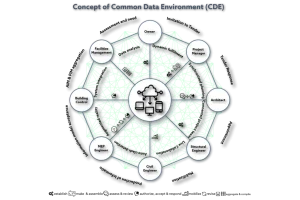Revit Guides
Data Management
ELI5
diffusion
a process by which an innovation is communicated through certain channels over time among the members of a social system E.M. Rogers, Diffusion of Innovations, Free Press, New York, 1995.
Asset Information Model (AIM)
The Asset Information Model or AIM is a term used to define the set of information gathered from all sources that support the continuing management of an asset
Asset Information Requirements (AIR)
Term introduced by ISO 19650 set of standards is related to information required during the operation phase of an asset AIR define managerial, commercial and technical aspects of information production,
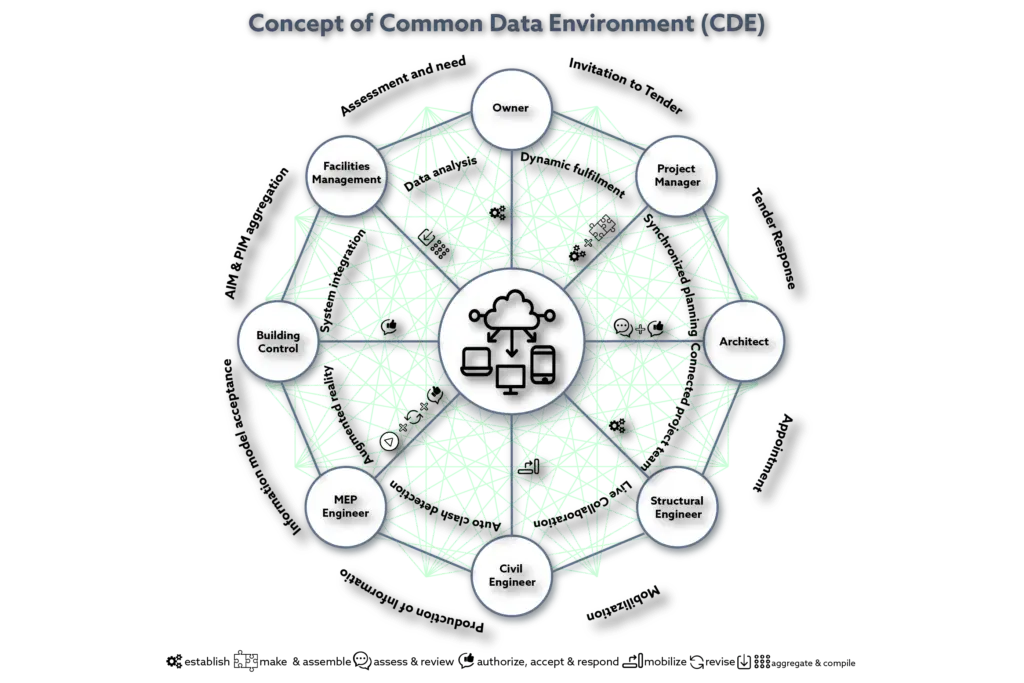
Common Data Environment (CDE)
ELI5-S1: BIM Basics E2: CDE Explained The purpose of using Common Data Environment (CDE) on a project is to provide the right person with the right information at the right
Computer aided facility management (CAFM)
Originally coined in the 60s, The acronym has become a catch-all for a wide range of Facilities Management platforms and software. A CAFM system can be broadly defined as a collaborative,
Key Performance Indicator (KPI)
KPI is an abbreviation for key performance indicator, which is a quantifiable measure of performance over time for a specific goal. KPIs provide goals for teams to aim for, milestones
Operations and Maintenance (O&M)
Describes the functions, duties, and labour associated with the operations of an asset, including repairs, replacement of parts and structural components, and other activities needed to maintain an asset.
Royal Institute of British Architects (RIBA)
RIBA Plan Of Work 2020 0 – Strategic Definition is about determining the best means of achieving the client’s requirements. An open mind is required because a building might not
Leadership in Energy and Environmental Design
An internationally recognized green building certification system confirms the level of the sustainability performance of an asset. Confirming the level at which the asset was designed and built using strategies
Building Research Establishment Environmental Assessment Method (BREEAM)
It is a UK green building certification system, launched in 1990 by the Building Research Establishment (BRE), similar to LEED. Both systems confirm the level of the sustainability performance of
task team
The term, introduced by ISO 19650, describes a team of people working together on a specific task. task team might be an individual appointed party, and the appointed party might
Tier 2
In the construction industry, Tier 2 is a Contractor referred in ISO 19650 as the Appointed party with a sub-contract who provide goods or services directly to the Lead Appointed
Tier 3
In the construction industry, Tier 3 is a sub-contractor referred in ISO 19650 as the Appointed party and Task Team, with a sub-contract who provides goods or services directly to
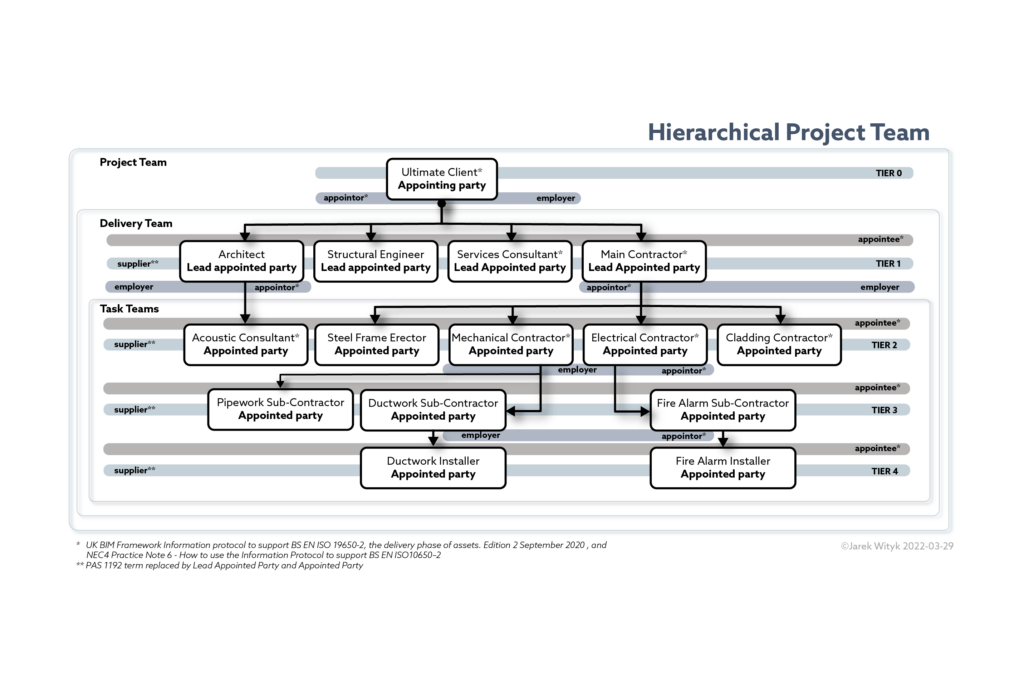
Project Team
All parties appointed for the project are defined as members of the Project Team. Each function can be fulfilled by either an individual or multiple people throughout the course of
objective
results to be achieved The objective can be strategic or operational; it can relate to different disciplines such as financial, health and safety, or environmental. The targeted results can be
asset
An asset is anything that has potential or actual value, whether a resource or a value that can be converted into capital. An organisation or individual expects the asset to
verification
confirmation, through the provision of objective evidence, that specified requirements have beenfulfilled [SOURCE: BS EN 17412‑1:2020] Verification is the process of checking that the product/service meets the specification, it will
validation
confirmation, through the provision of objective evidence, that the requirements for a specific intendeduse or application have been fulfilled [SOURCE: BS EN 17412‑1:2020] For example, it is the process of
top management
person or group of people who directs and controls an organization at the highest level [cited from ISO 19650-5:2020(en), 3.14]
actor
person, organization or organizational unit involved in a construction process [cited from ISO 19650-1:2018(en), 3.2.1]

client
actor (3.2.1) responsible for initiating a project and approving the brief [cited from ISO 19650-1:2018(en), 3.2.5] The UK BIM Alliance, responding to the inconsistency between the current guidance of CIC BIM Protocol,
delivery phase
part of the life cycle (3.2.10), during which an asset (3.2.8) is designed, constructed and commissioned [cited from ISO 19650-1:2018(en), 3.2.11] ISO 19650-2:2018 Standard dedicated to the delivery phase
risk appetite
amount and type of risk that an organization is willing to pursue or retain [cited from ISO 19650-5:2020(en), 3.5]
trigger event
a planned or unplanned event that changes an asset (3.2.8) or it’s status during its life cycle (3.2.10), which results in information exchange (3.3.7) [cited from ISO 19650-1:2018(en), 3.2.13]
security
state of relative freedom from threat (3.13) or harm caused by deliberate, unwanted, hostile or malicious acts [cited from ISO 19650-5:2020(en), 3.7]
plan of work
It is a project-specific “digitally checkable” framework set-up to ensure that the deliverables of all contributors are identified and appropriate to the decisions required at each work stage. The plan

information delivery milestone
scheduled event for a predefined information exchange [cited from ISO 19650-2:2018(en), 3.1.3.2] Milestones act as signposts through the course of a project. An information delivery milestone is a point in
Quality Assurance (QA)
Quality assurance (QA) is the action or process of verification that a requirement in terms of quality is being met. Managing the quality involves planning, establishing a workflow for fulfilling,
Quality Planning (QP)
Quality Planning (QP) is a framework which specifies quality standards, practices, resources, and the sequence of activities The quality plan should define:[1] Objectives to be achieved A workflow that represents

Quality Control
Quality control indicates an operational activity within the process, while quality assurance focuses on constructing confidence that quality requirements will be met. Quality is incorporated into production and verified during





